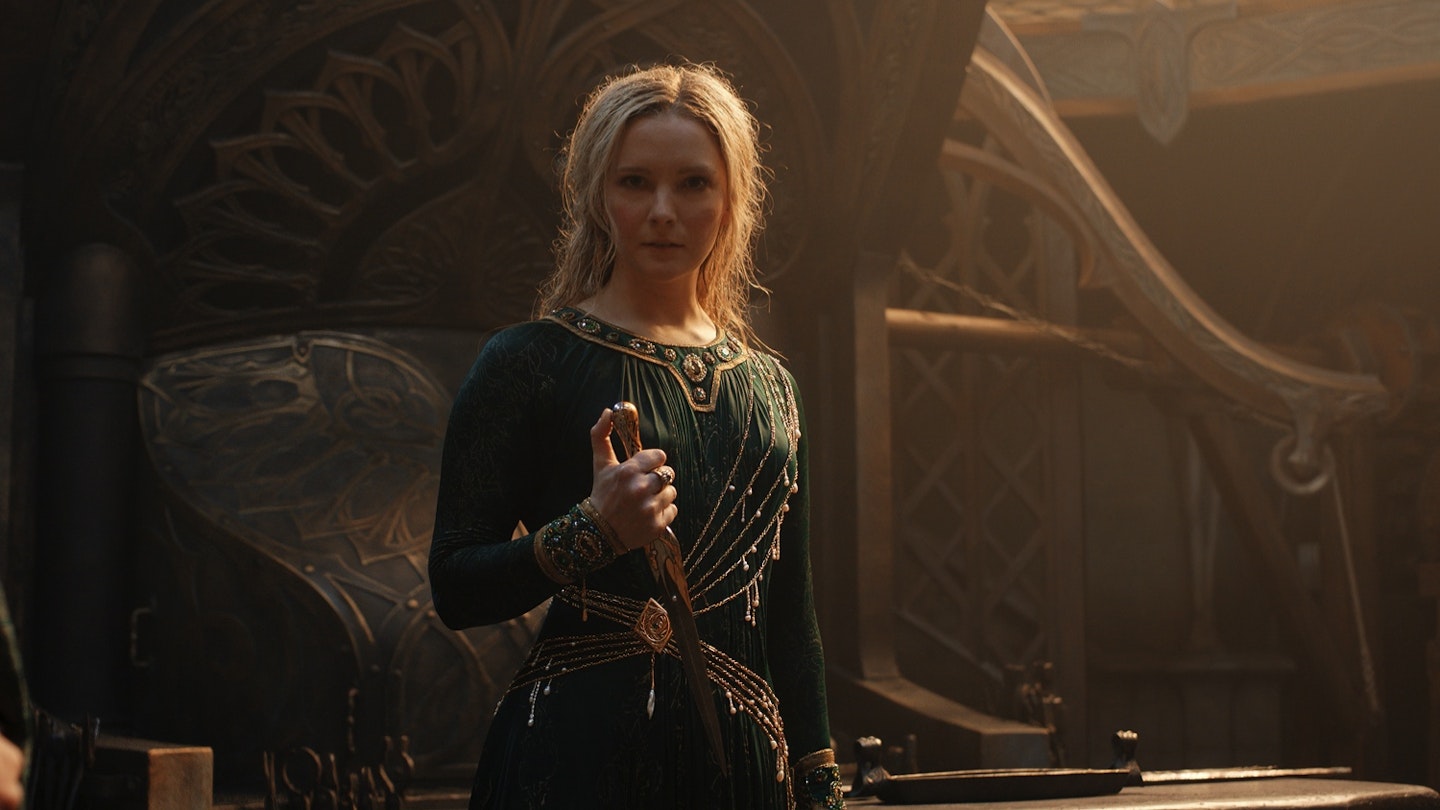The first part of an unexpected journey, to coin a phrase, has reached its end; season one of The Lord Of The Rings: The Rings Of Power concluded today, the first of an anticipated five seasons set in the Second Age of JRR Tolkien’s Middle-earth saga. With it has come a flurry of excitement, controversy, speculation and more theories than a learner driver trying to pass their driving test.
To help make sense of a momentous final episode, Empire enlisted the show’s creators/executive producers/showrunners, JD Payne and Patrick McKay, plus cast members Morfydd Clark, Charlie Vickers and Daniel Weyman, to talk through the biggest talking points of season one, and explore what might be next for Amazon’s biggest show ever.
Speak spoiler, and enter: there are major, major spoilers for The Rings Of Power season finale below. Stop reading if you have not yet caught up with episode eight.
THE BIG REVEAL OF SAURON’S TRUE IDENTITY
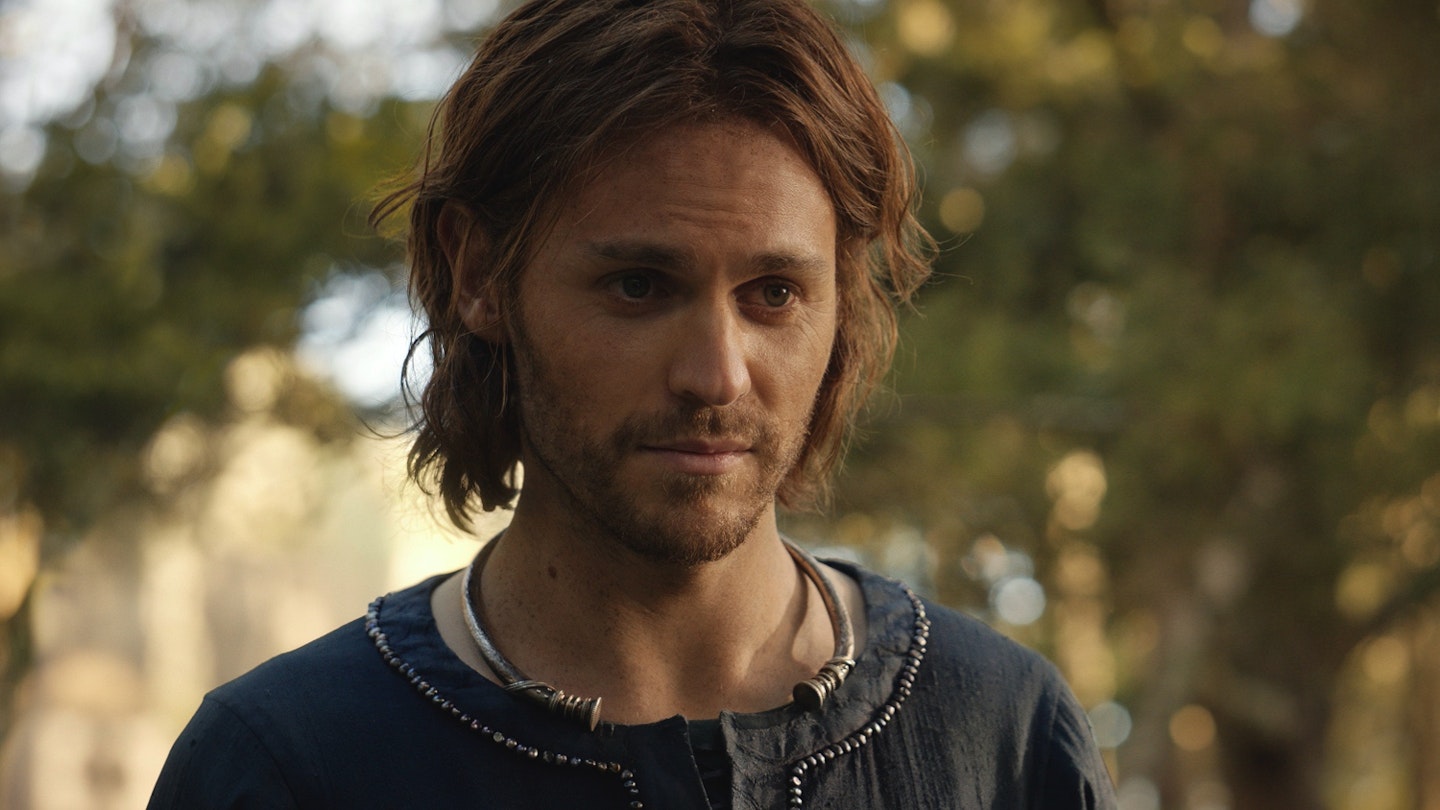
What we already know from the Tolkien canon about the Second Age, in which The Rings Of Power is set, is that Sauron is a master of disguise who tricks the elves into forging the rings. From episode one of the show, the gossip and rumour-mongering spread like wildfire through Fangorn Forest: who, exactly, was the Dark Lord himself?
Finally, in episode eight, it was revealed that humble Southlander (and supposed King), Lord Halbrand, played by Charlie Vickers, was in fact Sauron this entire time. The deception was always part of the fun, says co-creator Patrick McKay. “Sauron is the reason you do the Second Age,” he says. “This is the only time you'll have the ability for him to deceive the audience. We felt that that was a card worth playing here.”
For many working on the show, it is a relief to no longer have to hide the big secret. “We've made something that we and a lot of other people spent a long time putting together,” says co-creator JD Payne. “In some ways, until people can see the full thing, it's like showing people half a painting and saying, ‘What do you think about it?’ Once they can see the full painting, they can see the complete intentionality of what we strived to create.”
For Vickers — an actor who is such a relative unknown, he did not even have a Wikipedia page until this week — the relief is particularly palpable. “It's been frustrating at times!” he says with a laugh. “I was having to tread very carefully throughout the press tour. But it was an interesting exercise — because, y’know, Sauron is the ultimate deceiver.”
Vickers did not know the true nature of his character until well into production; the showrunners did not dish the dirt to him until filming on episode three had begun. But he had an “inkling” from the audition stage. “For my final audition, I had to do a speech from Paradise Lost,” he recalls. “Literally, as Satan.” He laughs. “So I was like, ‘Oh, okay. Clearly, this character has some darkness within him.’”
Learning that he would be taking on the role of one of fantasy fiction’s greatest villains would be something of a bombshell to any actor, but Vickers took it in his stride. “I feel an enormous sense of privilege,” he says. “It's very humbling to be asked to do something like this. You know, I can't control other people's expectations. But what I had to do was just go to the text.” He is aware that it’s rare to see Sauron on screen in human form (he is more commonly depicted in full armour, or as a disembodied eye), but Vickers notes that it is “by no means the definitive portrayal of Sauron. I think there's comfort in the fact that it's just adding another colour to what is already a really colourful page.”
For the showrunners, they are simply relieved that — despite the litany of theories pointing in that direction — the actual reveal itself never leaked early. “We had alternate scripts and coded scripts and all kinds of secrecy because we wanted what we're very delighted to have happened,” says McKay. “There's things Halbrand says that makes people put the breadcrumbs together, but there were great lengths gone to protect this storytelling as much as possible, and hopefully preserve it for viewers to come to their own conclusions.”
THE BIG SORT-OF REVEAL OF THE STRANGER’S TRUE IDENTITY
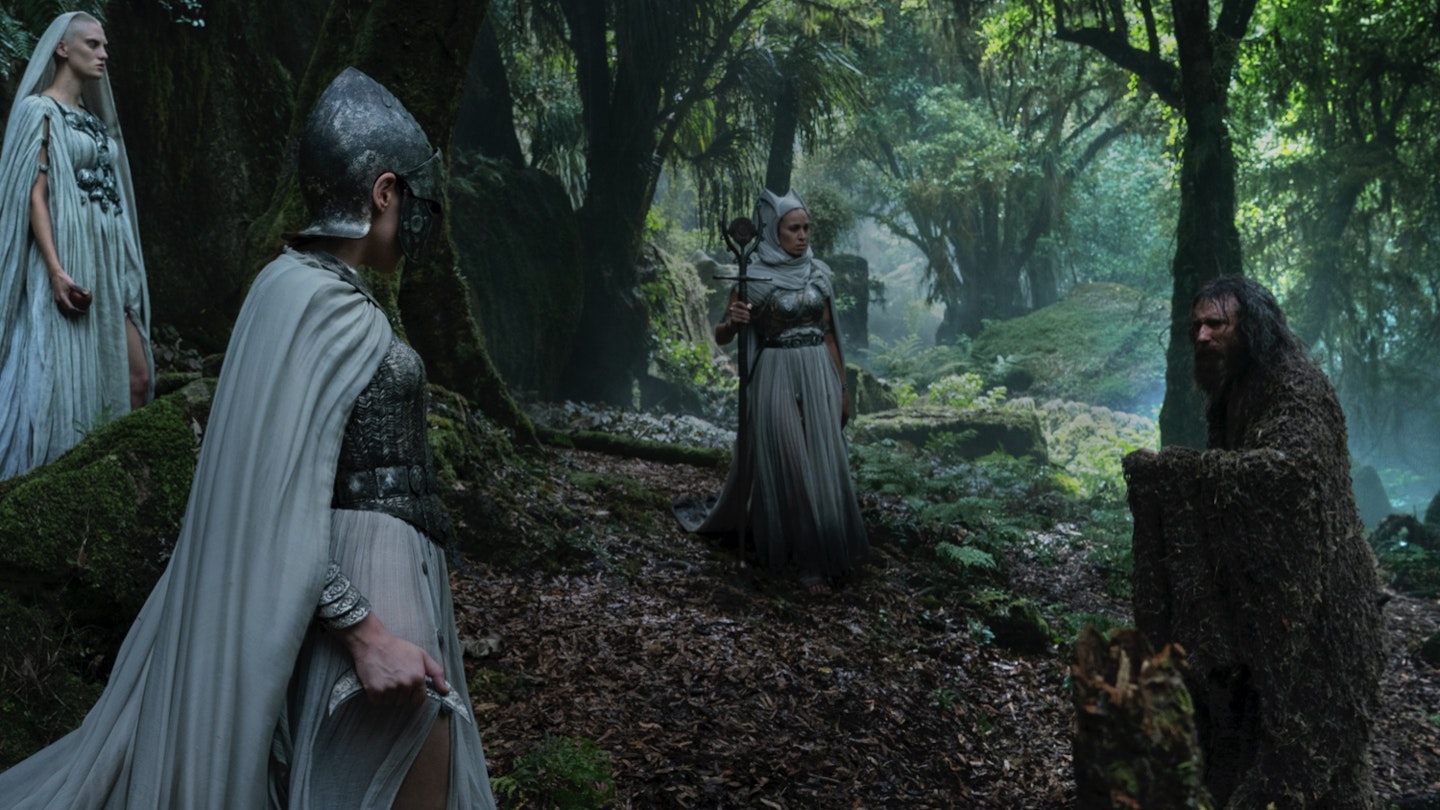
The other great mystery of the show was the identity of The Stranger, played by Daniel Weyman: a strange, bearded man who appears in a fireball at the end of episode one, crashing to earth in the middle of a Harfoot caravan. A teasing misdirect at the start of episode eight saw the Mystics mistakenly call him Sauron, before realising he was, in fact, an “Istar” — ie, a wizard. Dialogue later in the episode (“when in doubt, always follow your nose”) mirrored, almost word-for-word, that of Gandalf The Grey.
So, stranger no more? Is he Gandalf, then? The show’s creators are still keeping schtum — for now. “We feel that The Stranger is on a journey of self-discovery,” says McKay, carefully. “Whatever name he may one day be known as is not actually important at this stage of his journey. What matters at this stage is what he feels and the identity he's forming, and the relationships he's building with halflings and his own relationship to power and good and evil and darkness and light.”
As for Daniel Weyman — like his co-star Vickers — the character was initially something of a mystery to him, too, learning his true nature almost chronologically, as each episode emerged. “To be able to play that lack of understanding at the beginning, and to learn as the scenes came through, was great as an actor,” says Weyman. “Because it meant that I wasn't having to get to a future point. I was playing what was put in front of me. I felt I could really play it honestly.”
He remains evasive, like his bosses, on whether The Stranger is actually Gandalf: “The short answer is, I'm not sure anybody knows where The Stranger is going, as yet,” he says, with a smile. “I definitely don't. People have been quite rightly picking at things that actually tell us that we could be looking at quite a few different characters. But I hope that audiences enjoyed that we haven't just said, ‘This character is going to be this named being’. It is quite wonderful to still have these Tolkienian mysteries to play through that we haven't quite crystallized yet.”
But if the Stranger does indeed turn out to be Gandalf, as we strongly suspect, how would that fit in the Tolkien canon? For many readers, the famous wizard is traditionally understood to have been sent to Middle-earth by the godlike Valar at the beginning of the Third Age — thousands of years after the events of The Rings Of Power. For the creators, however, they don’t consider this to be breaking any canonical rules.
“There's really tantalising clues Tolkien has left in other writings, in his letters, that maybe the wizards who arrived in the Third Age were not the first wizards,” says McKay. “Maybe some of them came earlier. There's even references to Gandalf himself possibly coming much earlier in some different form — he ‘walked among the elves’. It's commonly accepted that the wizards didn't arrive until the Third Age, but as he continued to develop his legendarium, Tolkien opened all kinds of doors, which suggests really tantalising possibilities about the Istari. In our minds, the idea that there's a story to be told with a wizard in this age feels in harmony with canon.”
THE FORGING OF (SOME OF) THE RINGS
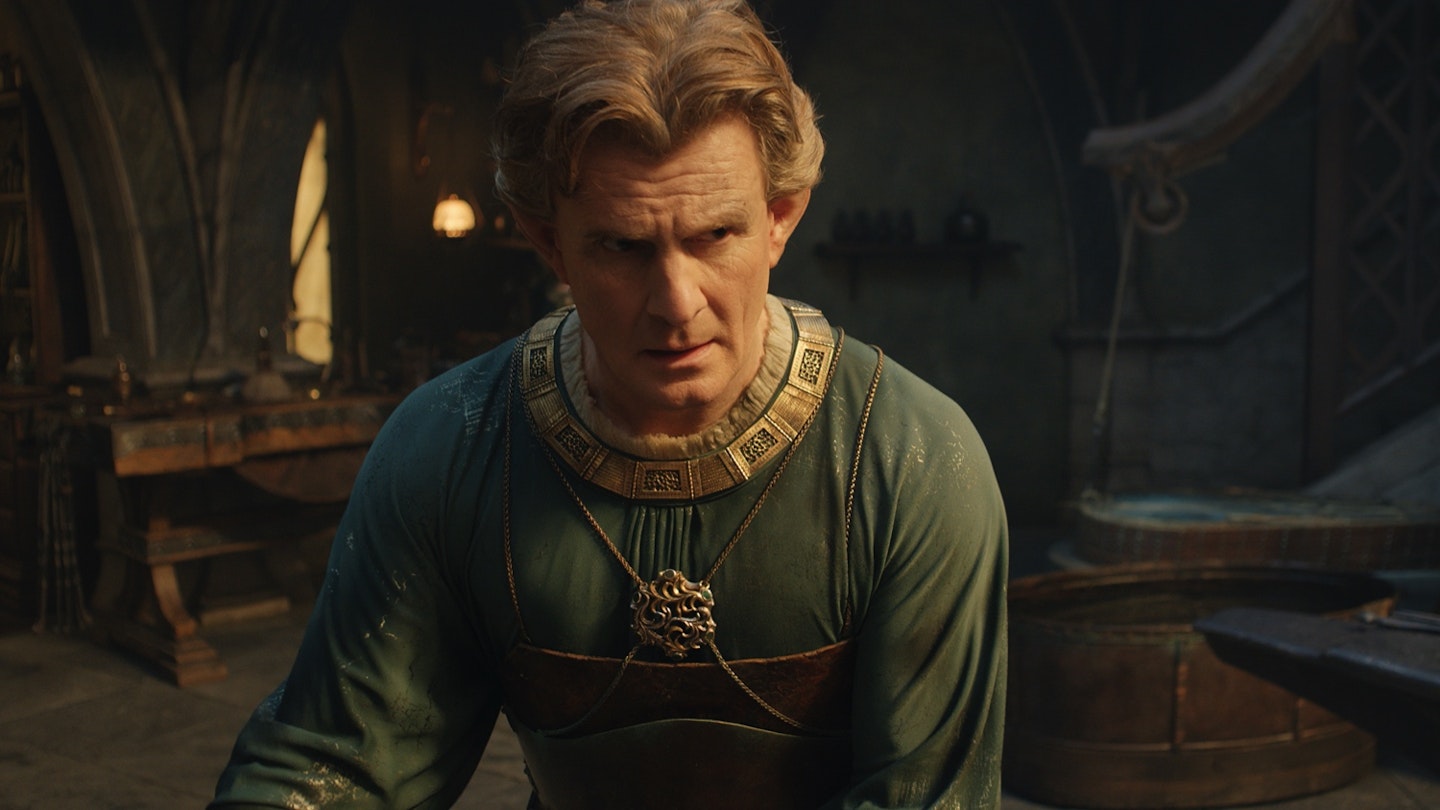
Episode eight saw the show finally live up to its title: the first rings of power were forged in Celebrimbor’s workshop, in the Elven kingdom of Eregion. This was the natural conclusion to season one from the start, says McKay. “There was never a different version,” he says. “That was locked in pretty early on. As the story evolved, it became clear that what Galadriel was really finding was meeting a person [Sauron] — and that person, plus mithril, plus Celebrimbor, equals rings.”
It represents, perhaps, a different side to the elves, says Morfydd Clark, who plays Galadriel. “It has been fun exploring the elves at this time,” she says. “I think we're quite used to the elves doing exactly the right thing and knowing exactly what to do. And that's not necessarily the case here.” So we see Celebrimbor (played by Charles Edwards) manipulated by Sauron into blending mithril with other alloys in order to craft the rings.
Galadriel, of course, finally learns Halbrand’s true identity in the finale — yet, in an act of careful calculation, she chooses not to disclose this information to anyone else. “Because she knows that if she did, the rings wouldn't get made," says Clark. "She needs the rings to be made so that the elves can stay in Middle-earth and continue to fight him. But I don't know whether that's the right thing to do!”
By the episode’s end, the first three rings of power have been forged: the three elven rings, known as Narya, Nenya, and Vilya. Galadriel, we know from Tolkien’s writing, eventually becomes a ring-bearer herself, wearing Nenya; she is seen wearing it in Lothlorien, in The Fellowship Of The Ring. Clark, for her part, is excited to join the ranks of ring-bearers. “She's gonna get a bit more magical!” she says. “I'm really looking forward to that.”
Among the ring’s powers include the preservation and concealment from evil, and the ability to see the future. “The gift, or curse, of foresight, I found quite interesting,” says Clark. “I've been thinking about it. At times, I imagine it must be very anxiety-inducing, to know so much, and to keep knowing — and also that some of that might never come to pass.”
But there are still more rings to come. Seventeen, in fact, including nine for men, and seven for the dwarves (as we hear in the end credits song of the finale, sung by Fiona Apple). There is also, most tantalisingly of all, the One Ring To Rule Them All, which we know will be forged in the fires of Mount Doom. For Vickers, the prospect of potentially wearing the One Ring as Sauron is almost too much to comprehend. “I haven't let my mind drift to that, to be honest,” he says with a nervous chuckle. “It's pretty, pretty cool. But I think that that's still quite far away in the journey of the show. If and when that time comes, it's going to be pretty amazing.”
WHERE IT ALL GOES NEXT
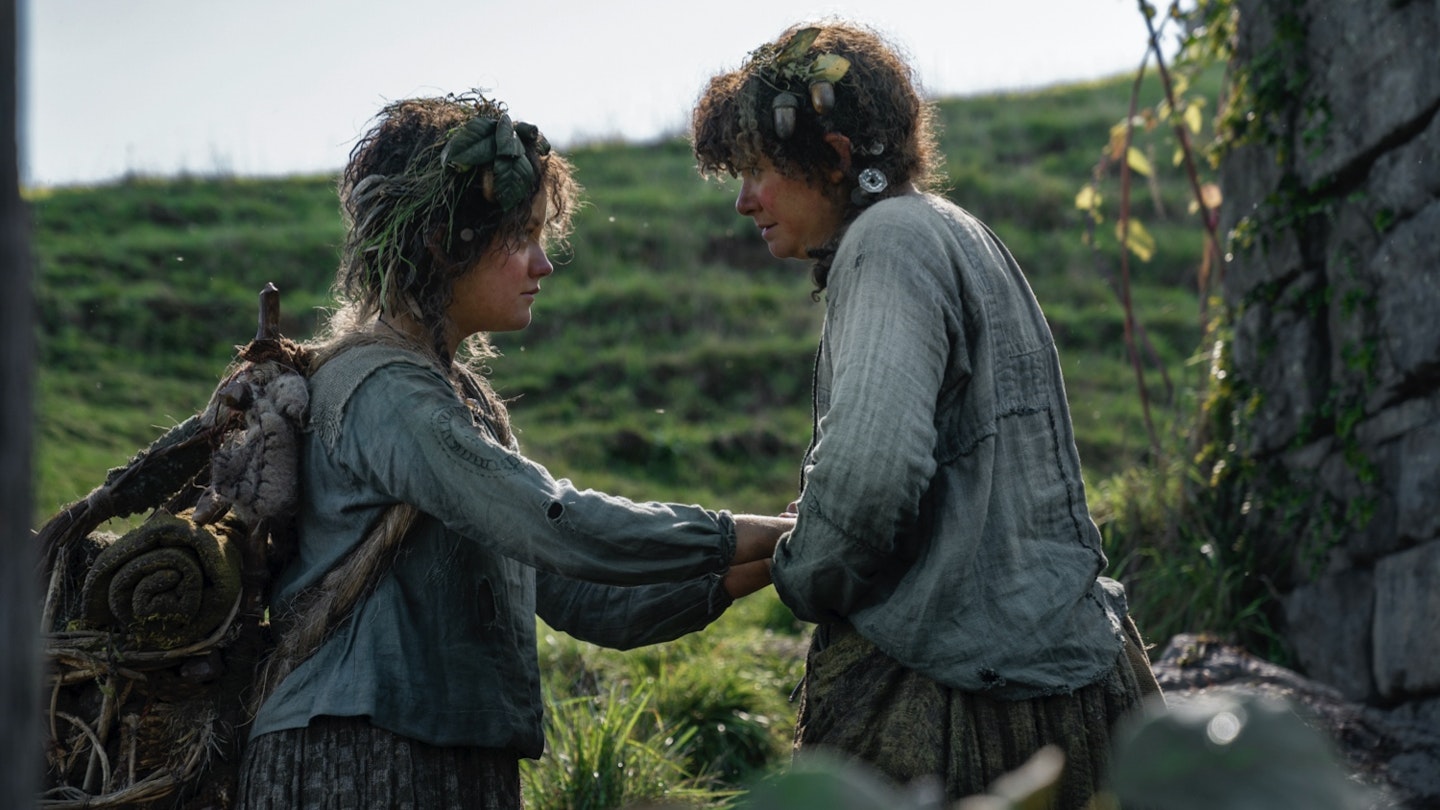
So, some of the show’s biggest questions have been answered — and yet, with season one done, it opens up a whole new raft of further questions. Where next for the huge ensemble, and what will season two look like?
For the showrunners, after considerable set up and introductions, it’s a chance to hit the ground running. “We felt it was very important that season one be about reintroducing Middle Earth in this new era,” says McKay. “Introducing all of these kingdoms, and all of these peoples and all of these characters and knowing what was important to them, and what they had at stake and hopefully doing so in a way that's, you know, intense and exciting and delightful.”
And while Sauron was a mystery bubbling in the background of season one, he gets upgraded to full big bad for the next batch of episodes. “In season two,” says McKay, “Sauron is now a new piece on the board.”
For Vickers, the attention is now surely going to ramp up on him — something he brushes aside. “I think one of the real joys of this so far has been being part of this ensemble,” he says. “Whether there's an exaggerated focus on me and my work going into the second season, because now we know Sauron, that's just a byproduct. The way I look at it is that it's gonna be equally exciting, but for different reasons — one being that I guess I can talk about it with a bit more clarity than I have been so far.”
Clark has not seen scripts for season two (which has already begun filming in earnest, here in the UK), but “we've had all those discussions,” she says. “I know what the next step is. I'm really amazed at just how rich and intricate all the different storylines and all the different worlds are. That's something I've just loved. I cried at the Harfoots! I've just fallen so in love with the Harfoots. I knew very little about what they were getting up to!”
Weyman, for his part, is simply looking forward to a new phase of The Stranger — next season, playing him as far more verbose and supernaturally wise than the character we largely see in season one. “In episode eight, we did a lot of work with Leith [McPherson], the dialect coach, on trying to tap into these ideas of otherworldliness,” Weyman says. “If you're playing a member of the Maiar [in Tolkien’s legendarium, the spirits that ultimately become wizards], then your circle of attention almost needs to be right out in the stars. How does that change where the voice sits? So I can't wait to start reading scripts and see where JD and Patrick take us. My heart is in my mouth as I think about it.” The possibilities for the future of The Rings Of Power are, frankly, vast; if you don't keep your feet, as someone once put it, there is no knowing where you might be swept off to.
Want to get the most from Empire? Sign up for Empire Membership!
Get exclusive content, new member-only rewards, access to the latest issue of the magazine plus our back-issue archive, and much more.
